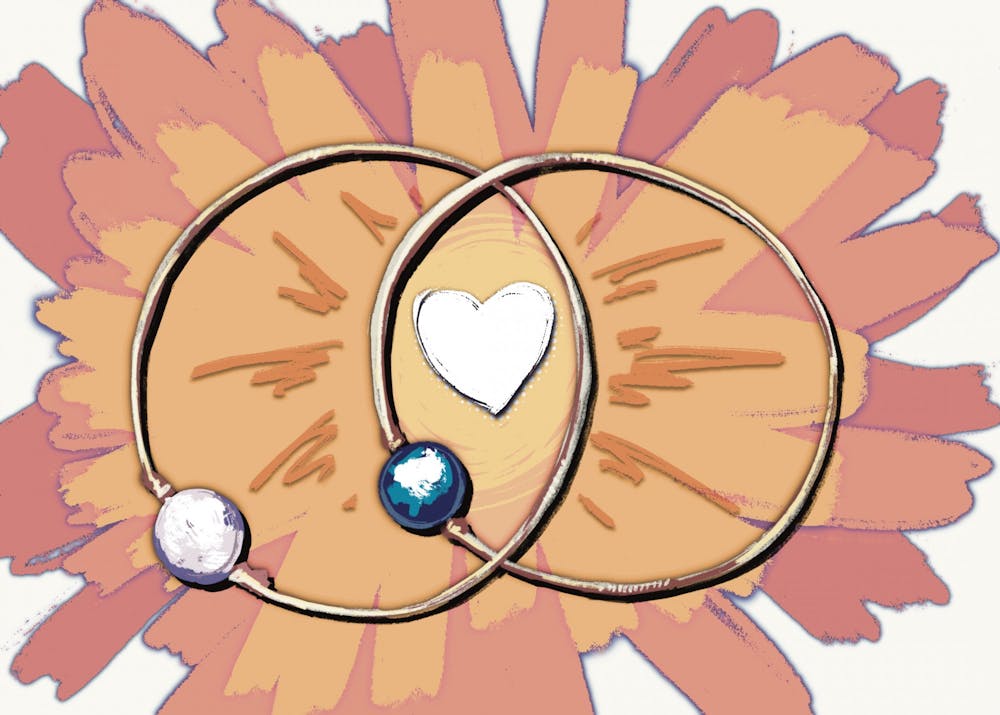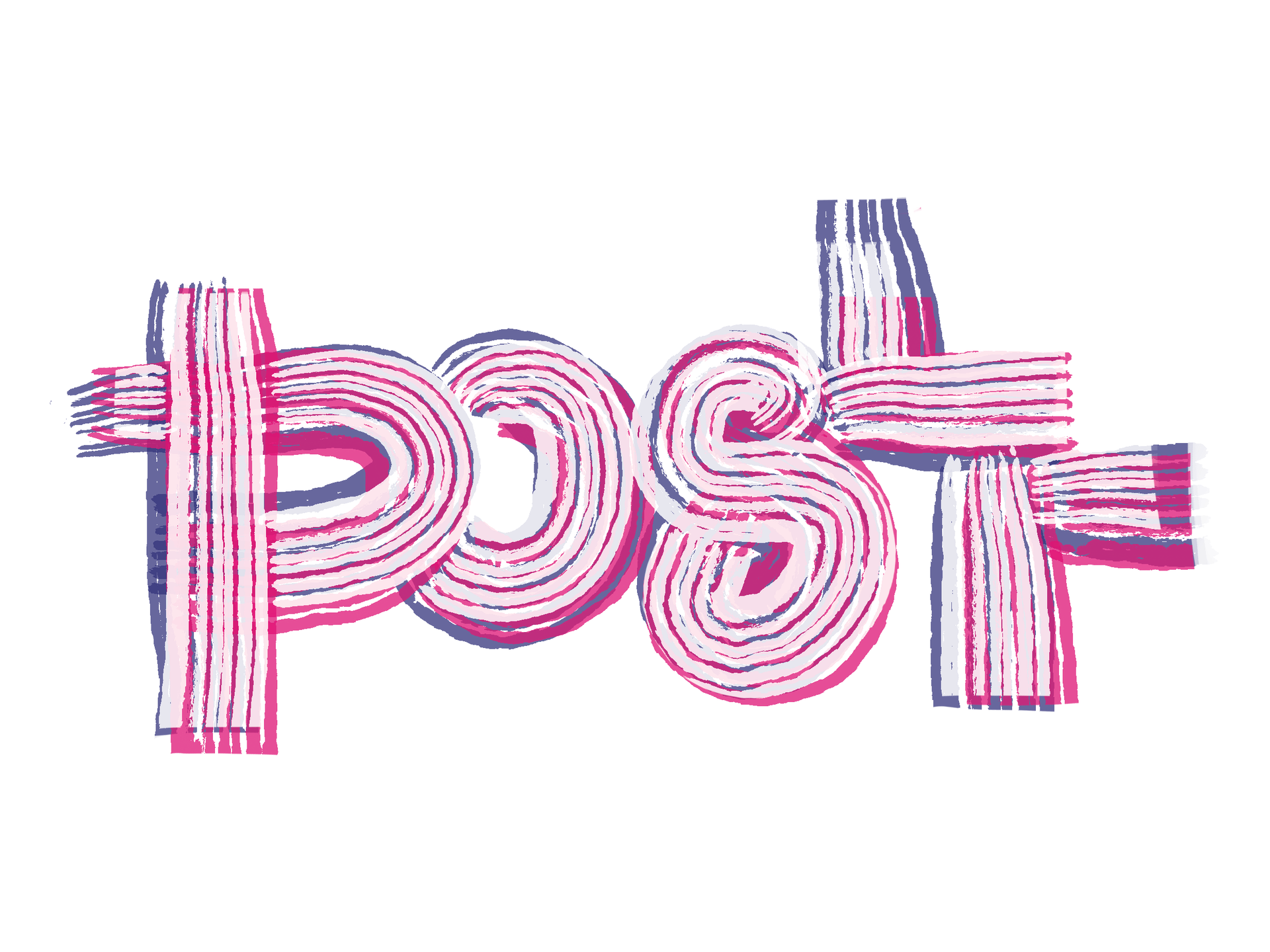Light twinkled through the windowpane in front of me, hopscotching across my worktable and glinting off the gems in my fingers. I was beading with rubies, stacking them between my fingers and sliding them carefully onto a strand of wire. Legs tucked up on my stool, I sat quietly, lost in the simple pleasure of my work. In a moment, distant footsteps pattered down the hall and I looked up towards the bright smile of my employer and mentor, Barbara Edelston Peterson.
“Zoe, you’re just speeding through these strands!” she exclaimed, peering closely over my shoulders. “Now, look at these.” Barbara laid out a pair of earrings, thin gold hoops with a Tahitian pearl. “They’re phenomenal,” I breathed, caught in the soft glimmer that skated along the surface of the pearls. “Well, I know, and you must have them,” she beamed, holding them up to my ears. “I’m just so proud of you, my little Zoe, off to Brown… I can’t stop kvelling over you!” She watched as I put the hoops in, showering me with words of affirmation. I love Barbara for countless reasons, but her talent for kvelling is one of the things that truly sets her apart.
“Kvell”’s direct translation, according to Merriam-Webster, is “to be extraordinarily proud, [to] rejoice.” It’s a Yiddish word with two roots: the earlier Yiddish verb kveln (to be delighted) and the German verb quellen (to well, gush, or swell). However, kvell has grown to encompass much more than its origin. In Barbara’s words, “Kvell is a love language, sending a loud and clear message that you are adored, you are recognized, and you are doing or did a good job.” Kvell is “a surge of positive feeling from one person to another,” a gift to both the recipient and the donor.
Since receiving Barbara’s earrings, I’ve worn them on countless occasions. Each time, I feel Barbara’s hugs, her endless support, her doting love. I’ve worked with Barbara for nearly five years, moving from beading and jewelry-making to interning for her nonprofit organization, the Whole Champion Foundation (WCF). WCF provides educational and motivational materials to advocate for personal awareness, responsibility, and action in order to improve our world; Barbara founded it on the principle that global challenges can only improve when each individual does their part. Every time I meet with Barbara, whether in a professional or friendly setting, she envelops me with compliments, assurance, and gifts. In an undoubtedly challenging and formative time in my life, Barbara fostered confidence and self-love within me; she defined the power of “kvell” in my life. In recent years, I’ve noticed the fundamental role that kvelling plays in wellbeing, and the many different places it can come from—friends, parents, partners, strangers, mentors, and ourselves.
At 8 a.m. on a sunny September morning, my parents and I rolled out of our Airbnb, loaded my six suitcases into the rental car, and drove to Brown’s campus. The air was muggy, the type of humidity you can feel cluster on your skin—so different from the breezy warmth of my California home. My mom and dad trailed behind me to the key office, all of us jittery. As the door to my room swung open, reality settled firmly on our shoulders; I was moving out from home. We hung tapestries and stuffed clothes into drawers, all of us dancing around the ephemerality of our togetherness. My parents left me to my own devices and the great excitement of college that night, and came by again in the morning, before their flight.
As we stood on the curb, the pressure of our great goodbye surrounded us. My mom and I cried, hugging each other. “We love you and believe in you, Zoe,” she said. “You can do anything you set your mind to!” My dad gave me a tight, quick squeeze. “I’m so proud of you, my dear,” he whispered. Their words held me up, gave me the strength to say goodbye and to push forward into my independence. In that first week of school, chin-deep in unfamiliar territory, their kvelling fueled my confidence and tenacity when I needed it the most.
The first semester of college was difficult for me and my long-distance boyfriend. We were thousands of miles apart, our days were misaligned by three hours, and we were in entirely unique and separate experiences. To be in a relationship during this tumultuous time of growth is to learn and mature together; we had to figure out how to nourish ourselves as individuals and as partners. We discovered a now indispensable part of our relationship: kvelling.
My boyfriend picked up guitar around six months ago, as a creative outlet during a challenging time in his life. Tinny fingerpicking soon progressed to complex and resplendent songs. The guitar is his fidget—he reaches for it in between classes and homework assignments, conversations and meals. Several weeks ago, he flew out to visit me, his guitar strapped to his back as a carry-on. Sitting in the cozy orange glow of my lamp, bright against the night of my window, he began to play. They were songs from my childhood, songs from our teenage years, songs from college. I watched as he strummed with soft fluidity and the chords changed underneath his finger pads, his eyes closed as we both listened closely. I felt this bubble of unhindered joy swell within me, something much deeper than pride. When he finished playing, the lamp seemed to dim, the reverberations of his final note slowing until the room sat in quiet stillness with us. I grabbed his hands, letting my bubble of joy pop and billow over him.
“I am so proud of you,” I told him simply, “You have poured your heart into this and I see it and I am happy and excited and in awe.” I could see the impact these words had, the brightening of his spirit and his confidence. Kvelling fulfilled both of us.
A few days ago, my workload had reached a nearly insurmountable peak and I felt entirely overwhelmed. I sat down in front of my computer, FaceTimed my boyfriend, and burst into tears. He pieced words together between the blubbering sobs and waited until I had thoroughly exhausted myself before speaking. “Zoe—
You are strong. You are capable. You do not need to do everything, but I know that you can. You inspire me in everything that you do, and I love you.”
I could feel the warm tenderness of my boyfriend’s kvelling, his stabilization and encouragement. Despite being thousands of miles apart, our kvelling fuels our well-being as individuals and as partners.
Recently, I got my score back on the second midterm of my chemistry class. When the email popped up, I anxiously opened my Canvas page and stopped short—I had gotten two points less than I’d been hoping for. It was a great score, fifteen points higher than what I’d scored on the first midterm. But still, my heart squeezed tight, my spirits slumped, and tears pricked my eyes. My entire week had been spent at the mercy of molecular orbitals and pi bonds, only for me to fall two points short. In the next few days, I grew more and more frustrated, noticing the silly mistakes or forgotten steps that had set me back. My boyfriend and my mom showered me with affirmations, my friends congratulated me, but I couldn’t stop thinking about those two points.
A week later, I sat down with Barbara’s soon-to-be-published book about the power of kvelling, I Kvell. Do You? On the last page, she writes:
“We can be our biggest champions.”
I read it again. “We can be our biggest champions.” Her words reverberated in my brain, slotted into the space those two lost points had been filling. I wasn’t being my own champion; I was letting a moment of accomplishment escape unnoticed, dragging my feet beneath the weight of a small mistake. We can––we must––kvell over ourselves, just as much as we kvell over others. We need to nurture ourselves before we can thoroughly nurture those around us. I needed to take pride in my accomplishments, no matter how imperfect they were, before I could consider myself a true kveller.
So, I told myself: This is an accomplishment. This is your hard work and your tangible triumph. I took the time and the thought to kvell over myself, to take pride in my efforts and my achievements. My own kvelling strengthened my motivation, my confidence, and my ability to kvell over others.
With these moments, I’ve come to understand something about kvelling; it doesn’t matter how or where it’s done, only that it happens. Some people kvell constantly, like Barbara and my mom and my boyfriend. Some kvell quietly and sparsely, like my dad. Because the connections between partners, friends, and parents are so intrinsically different, the kvelling in these relationships will differ greatly. Parents are often an early and consistent source of kvelling, while partners and friends grow and develop their kvelling. The ability to thoughtfully kvell over oneself can be just as challenging to develop, but it’s a fundamental piece of fulfillment.
However, in all of my relationships, I value reciprocation, the sharing of time, affection, support, and love––all of these are tied to kvelling. I rejoice in the well-being and achievements of my loved ones, and they rejoice in mine. Kvelling is a lifestyle; it is opening yourself up to the joy of others. As Barbara told me, “Kvelling is a love language for the whole world.”
Barbara’s book I Kvell. Do You? will be published soon and available for purchase on https://wholechampion.org/.





